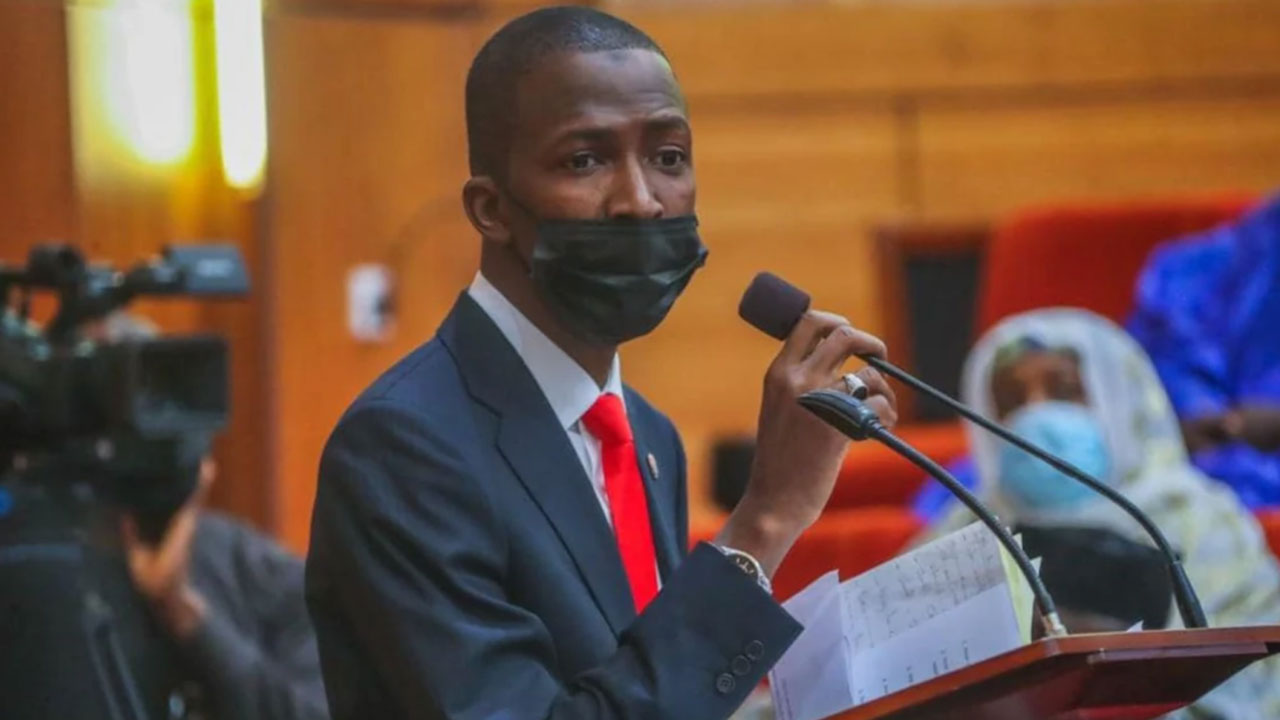Executive Chairman of EFCC, Abdulrasheed Bawa, has called on Community-Based Organisations, to use whistle-blowing in reporting crimes in their neighbourhood.
Newsonline reports that the anti-graft chairman made the call in Ilorin, Kwara State on Thursday while presenting a paper on overcoming the challenges of whistle-blowing and anti-corruption at a One-Day Stakeholders’ Town Hall meeting organized by the African Centre for Media and Information Literacy, AFRICMIL.
In a statement released by the EFCC media unit, Abdulrasheed Bawa said every Nigerian has a role to play in the fight against economic and financial crimes by exposing compromises of extant laws on corrupt practices in their environments.
“We need every Nigerian to come on board because the negative effect of corruption does not discriminate against ethnicity, religion or political affiliation. We need citizens to actively participate in the fight against economic and financial crimes through volunteering information”, Bawa said.
Bawa assured that the EFCC is willing to collaborate with CBOs such as AFRICMIL in strengthening citizens’ capacities to identify and report cases of corruption as well as educating them on the guidelines for whistle-blowing and procedures for processing entitlement.
“This is an area where the Commission is willing to partner with organizations such as AFRICMIL, to work with Community-Based Organizations in strengthening their capacities to identify and quickly report suspected cases of corruption in their communities.”
He explained that one of the positive steps the EFCC has taken in easing the process of whistle-blowing is the development of the “Eagle Eye App” that allows informants to report and interface with officials of the Commission.
“The app… has added a new and very interesting perspective to whistle-blowing in Nigeria. I urge all those who are yet to make use of the application to download it into their phones and take advantage of its easy-to-use features”, he said.
READ ALSO: Emefiele In Fresh Trouble Over Violation Of CBN Act 2007
The Coordinator of the Centre, Chido Onumah, said the meeting was organized to strengthen the capacity of stakeholders on the whistle-blowing policy.
He added that the Centre has created awareness and sensitized the public on the importance of whistle-blowing as a tool for fighting corruption and checking other forms of wrongdoing in society.
He charged Nigerians from all walks of life to see the exposure of corrupt acts in their neighbourhood as a bounden duty and patriotic drive and in the process assist the EFCC to deliver more on its mandate.
“Whistle blowing has proven to be the most direct method of exposing corrupt acts. We are both morally and legally bound as citizens not to keep silent or acquiesce to any of corruption or wrongdoing whenever we see one”, he said.














